ROSS WILLIAMS - REFLECTIONS
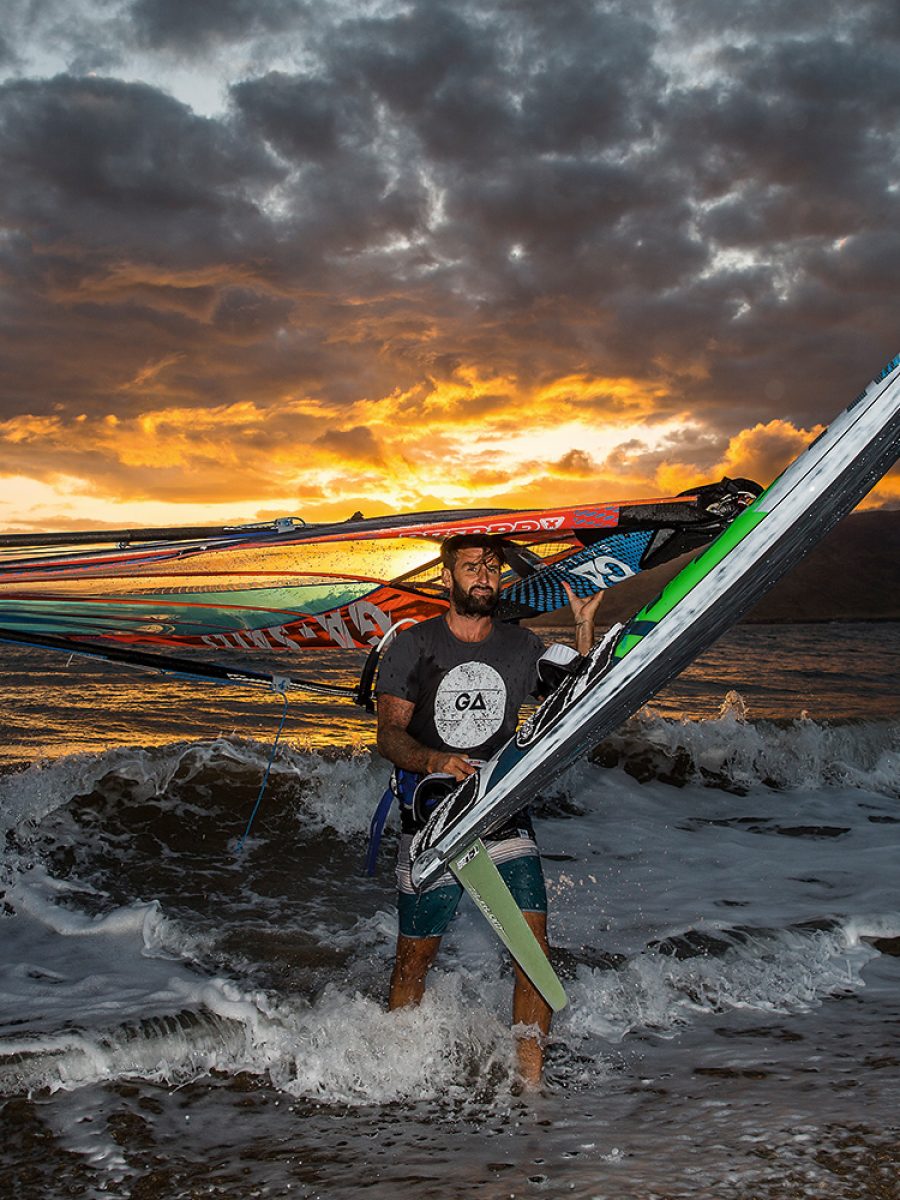
Ross Williams is Britain’s top professional racer and one of the world’s leading slalom sailors. His 2017 racing season was one that saw him sit inside the top three for most of the year but finish in the rankings just outside the podium in fourth after a disappointing final event in Noumea. It was still a highly respectable result and sometimes the more interesting story is in losses not wins; John Carter sits down with Ross and asks him to reflect on his year.
Words & Photos John Carter
This feature originally appeared in the May 2018 issue of Windsurf Magazine
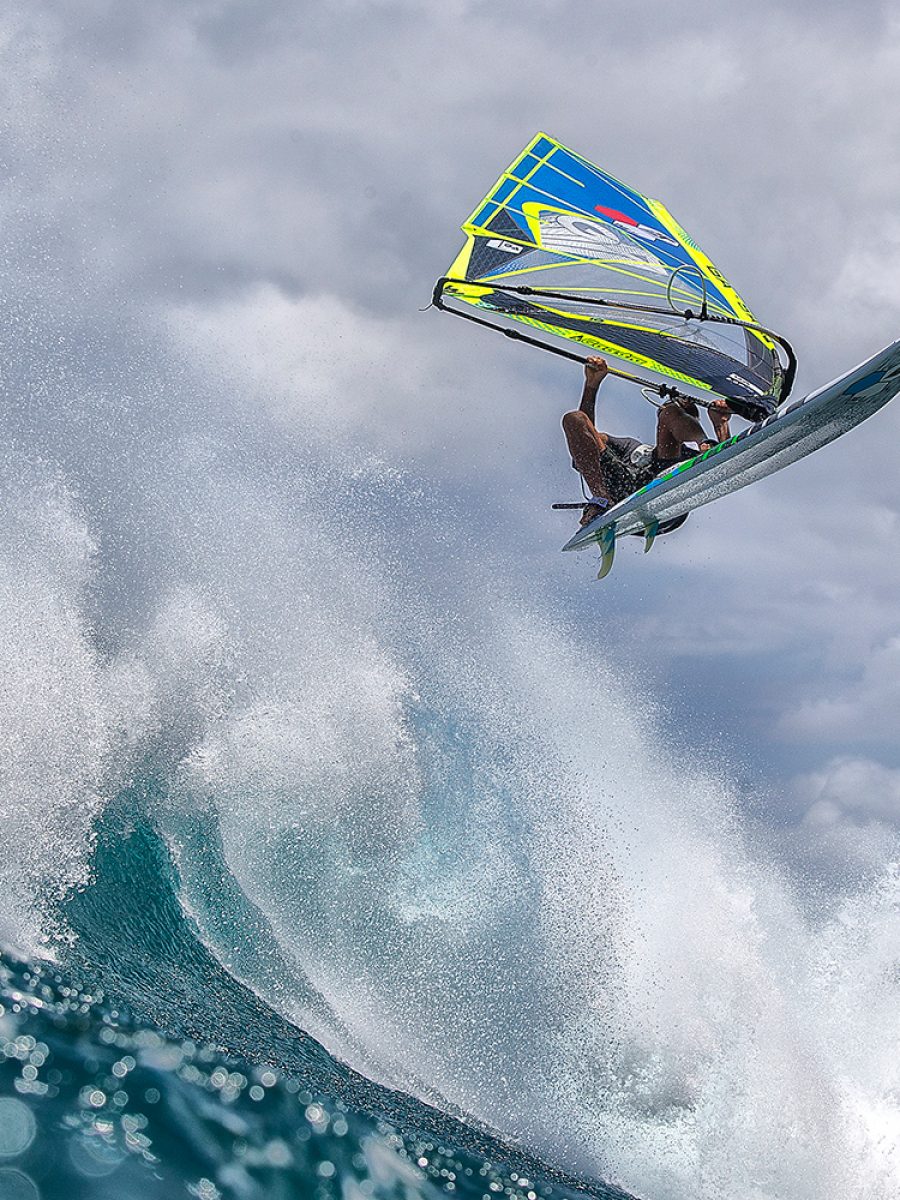
JC: It was not the ideal way to finish the season but were you happy with your racing last year on tour?
RW: I went into the event in Noumea knowing that I needed to perform well, so I was happy with my event preparation. I made some mistakes that cost me a couple of results and unfortunately that is the way it goes in the heat of the moment. There were a few factors that didn’t help my decision making! I picked up an ankle injury wavesailing two weeks before the event. It was a pretty bad wipeout at the Bench in K-Bay and I still feel it now. That was the reason that I was not feeling comfortable in certain conditions that we faced. I don’t think it was luck. At that level you need your whole setup working in every condition, that is what makes the difference.
Looking back I think if someone would have asked me at the beginning of the season if I would be happy with finishing fourth in the overall slalom ranking, I think I’d have taken it no problem. I had the chance to take third but it was just not meant to be. I was overall pretty happy with my racing over the whole season. I think I can add up the racing mistakes I made during the events on one hand so I have no real regrets.
JC: How as a racer do you deal with a blow like that after being so close to the overall podium?
RW: It does not bother me at all! If anything it just puts more fuel on the fire. After Noumea I was happy that the season was over, I was stoked that I had achieved a solid result and three podiums through the year. Finally the most important thing was that I could go home and spend time with my wife and friends and family, go surf and go sail in the waves.
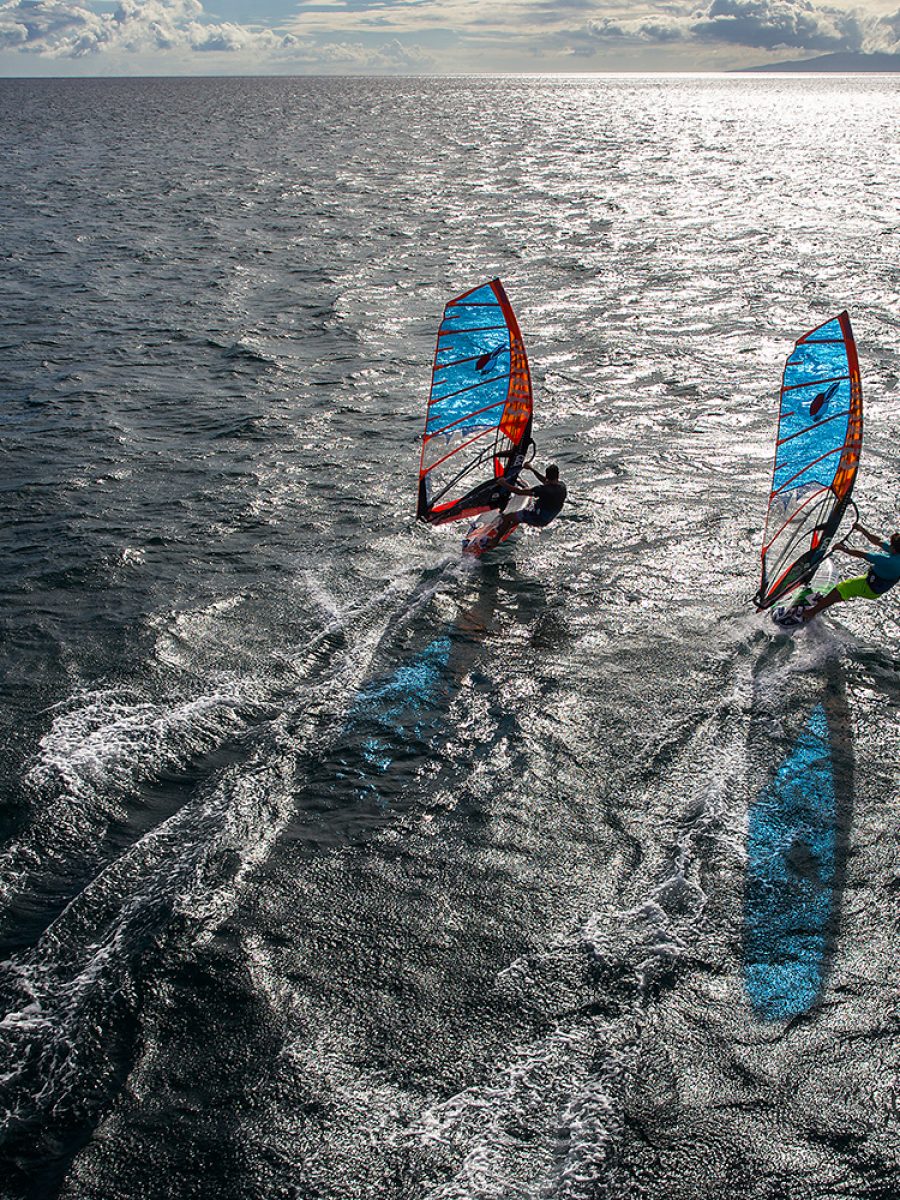
JC: Does it make you even more motivated to come back next year stronger?
RW: Yeah I think so, I really thrive on competing and racing is my strong point. I am one of the best on tour at the moment and I think I still have something more to prove before I get too old to compete at the highest level. I’ve been competing for many years but I am not done by a long way yet.
JC: How much do you respect the likes of Albeau, Iachino and Mortefon who are your main rivals on tour?
RW: I have a lot of respect for those guys, they are all great sailors and they have each played a role in really helping me to push my level of sailing too! Not so much as training partners, just more as inspirational characters and the way they train and work hard at being the best in the business. I don’t really think about beating one guy out on the water, it’s every single one of them!
JC: How much does experience count as a slalom racer?
RW: Experience is a very nice tool to call upon, just to know your craft more and more is a blessing and that is why a lot of the older guys are still on top!
JC: How much development goes into the new gear for each season?
RW: There is a lot of development that goes into the sails and boards, as much as time and budget will allow. If we can make five sets of sails in a development cycle we will. But if we can also do ten we will if it is possible.
The whole programme is based on finding and understanding what to change in the given time period. There is no point changing something if you don’t understand why you are changing it. Ultimately I want equipment that is going to win races, events and a world title. So under those parameters, the equipment must be fast, be able to fight in racing situations, needs to be comfortable to sail in every range of conditions, and very importantly it needs to be strong and not fall apart. If the gear can’t handle a lot of use it is not good for us as team riders or for the paying customers. After all the testing the final product is decided on by the designer, the testers, the market, and the big boss. It all has to work together so we can come up with the best overall products. When we finally choose our equipment for the next season, if there is something I am not happy with, there isn’t anything you can do apart from race as well as you can, report back to your designer and test team and hopefully you can work on that and keep improving the products.
JC: What was the highlight for you last season?
RW: I still think winning races in strong winds was my highlight! So racing in Fuerteventura is something I am proud about and finishing on the podium for the third year in a row was very satisfying.
JC: You have spent most of the winter in Maui this year, is that home for you now?
RW: At the moment that is where my wife and I rent a house and I try to spend as much time as I can there. It is tricky because my job and all the events are outside of Maui and to travel is expensive. I feel very lucky to be able to go there, not just to be with her but it is also an amazing place with a high level of watersports. Being on Maui really helps you to push your limits.
JC: What is a typical day like for you in Maui?
RW: I am for sure living the dream when I am in Hawaii. A typical day for me would be first getting up early between 5.30 and 6am and either heading for a surf or working on the computer to catch up with the latest goings on in Europe and the UK. Then I will usually make sure that my wife and I have breakfast together before she goes off to work. Next up I usually go training around 9 or 10am in the gym with my trainer. After the workout I usually need a rest and am ready to eat again. Then I will check the conditions and go to the beach and either kite, wave/slalom sail or surf. In the afternoon Loreley gets back from work so we might have a late lunch together and then go back to the beach so she can get some sun and I can go back in the water (if it is firing). If nothing is happening then we will stay outside drinking Mate (Argentinian tea), have friends come over or hang out with our families. Then when the sun goes down I go back to working on the computer while my amazing wife usually prepares us a delicious dinner while I play DJ so we can listen to some new music. We both enjoy this. We are usually in bed by 10, so we can be well rested for the next day.
JC: When you come home to the Isle of Wight is that when you just like to follow your passions of surfing and wave sailing at your home spots and escape the training and testing regime?
RW: When I am back on the island, I know how to make the most out of the best tide and condition states, so my schedule always revolves around the forecast. I can’t stand to think that I am on the island and I might have missed the best couple of hours! That is why you might see me paddling out while it is dark, or sailing during the coldest, darkest days during the winter. I love the feeling of challenging myself to score the prime conditions, so work can be rescheduled around those moments.
“ I love the feeling of challenging myself to score the prime conditions.”
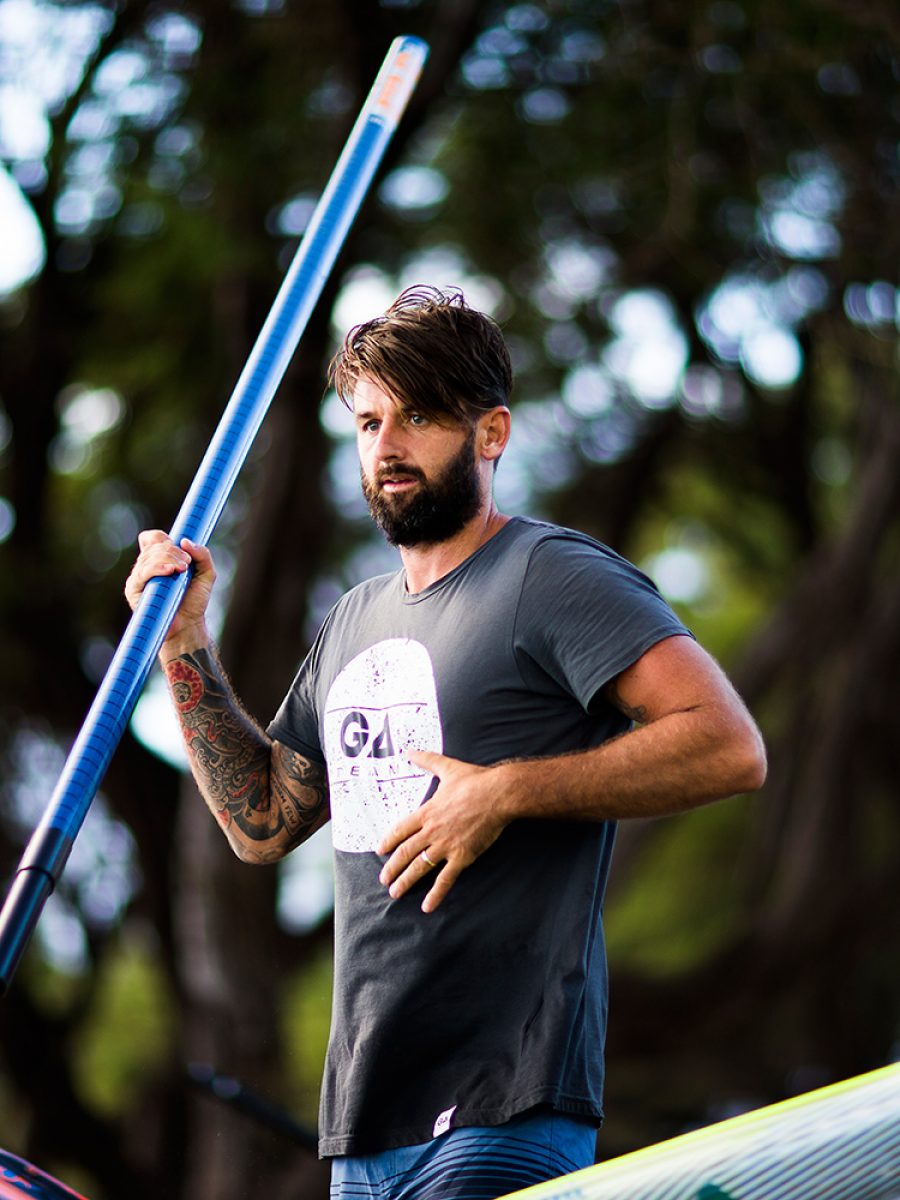
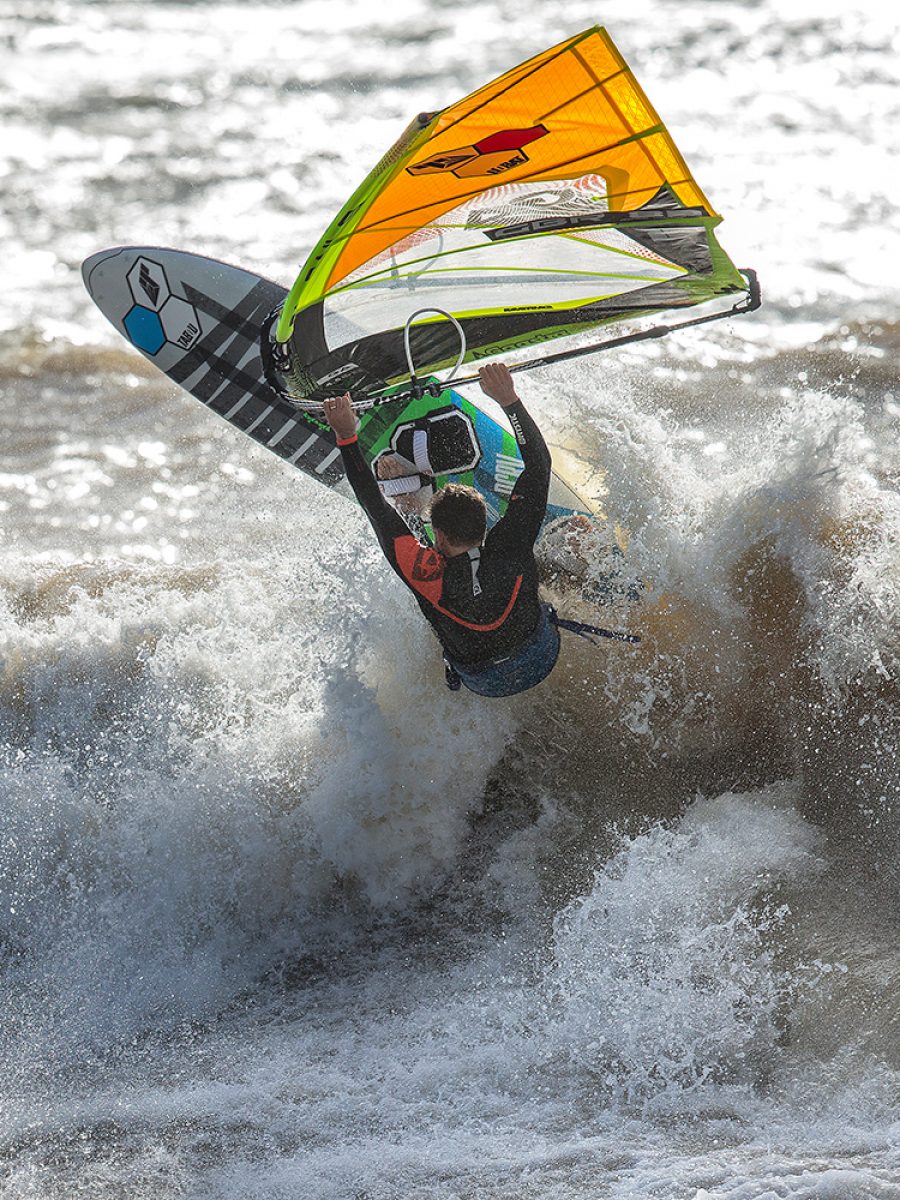
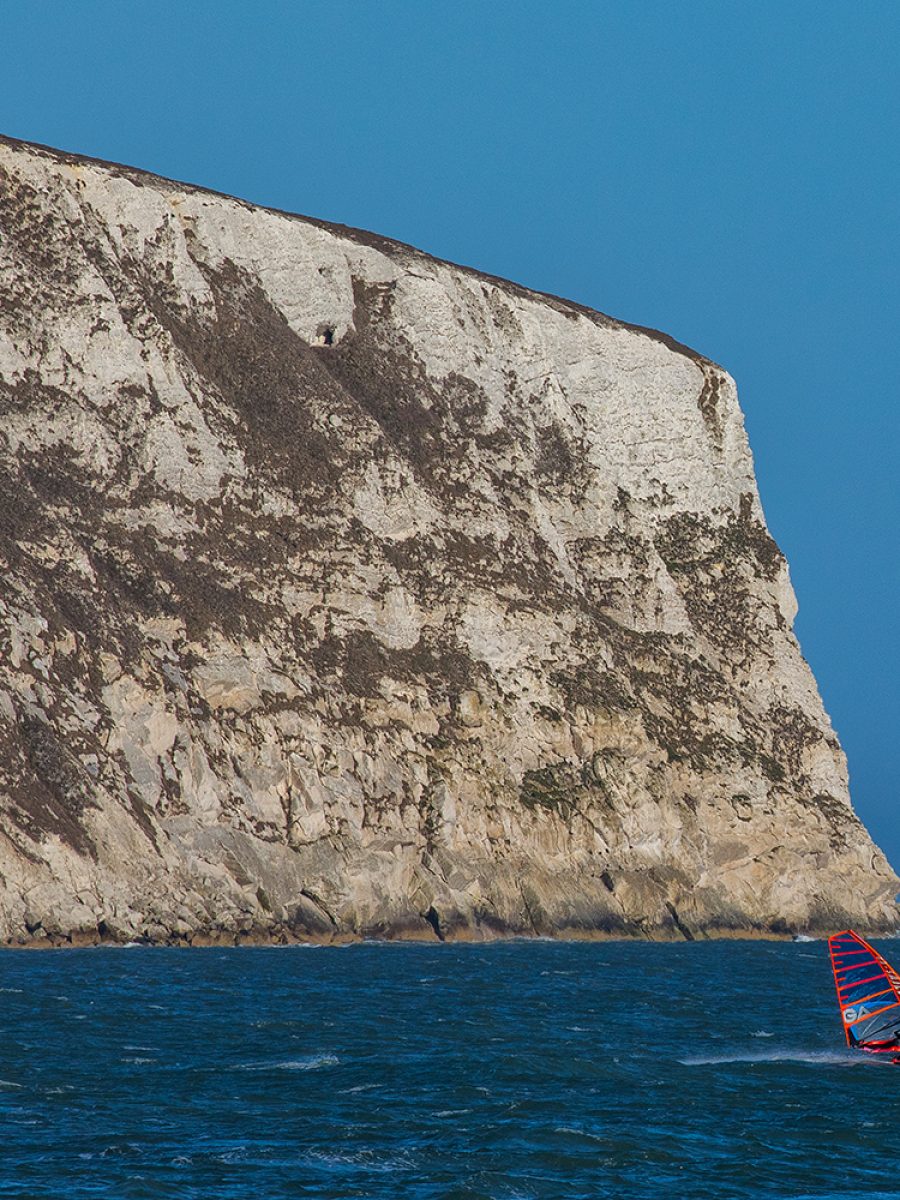
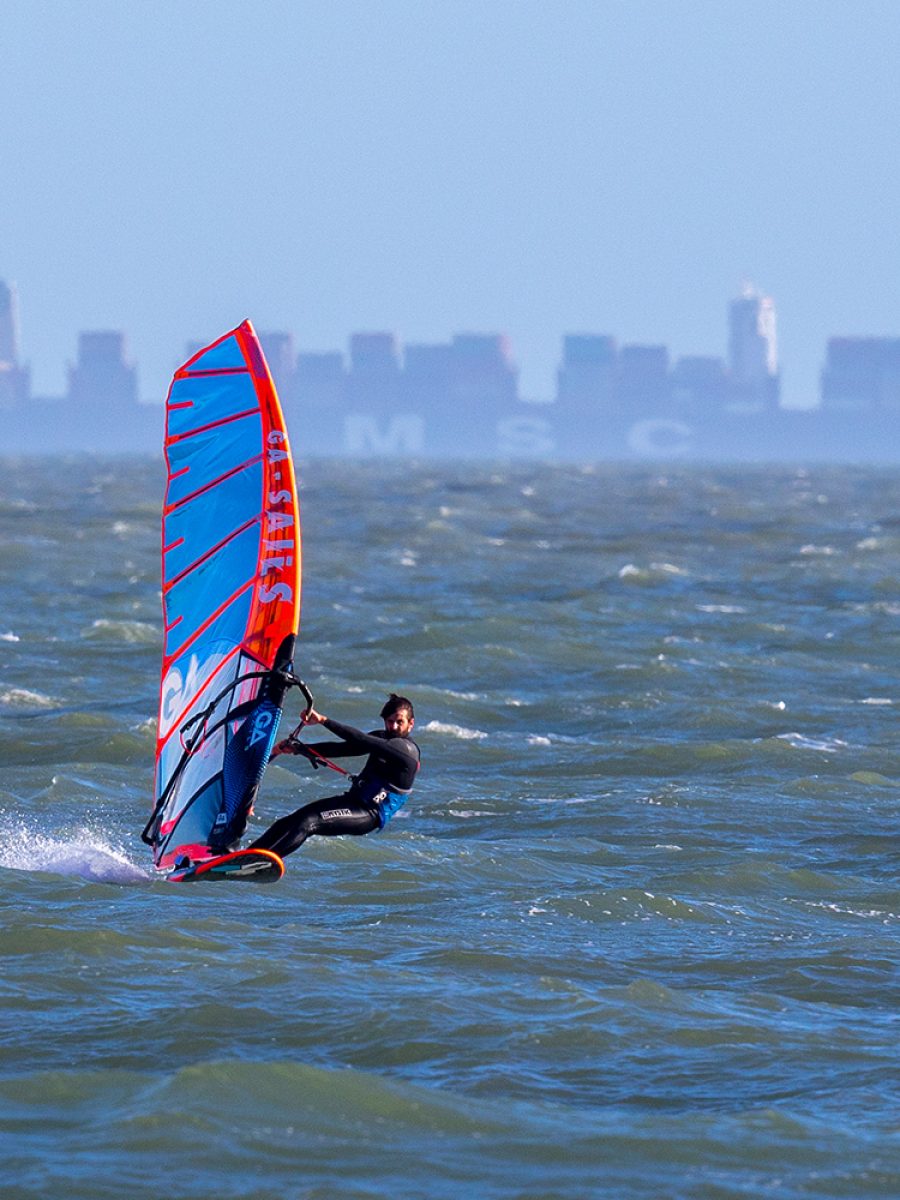
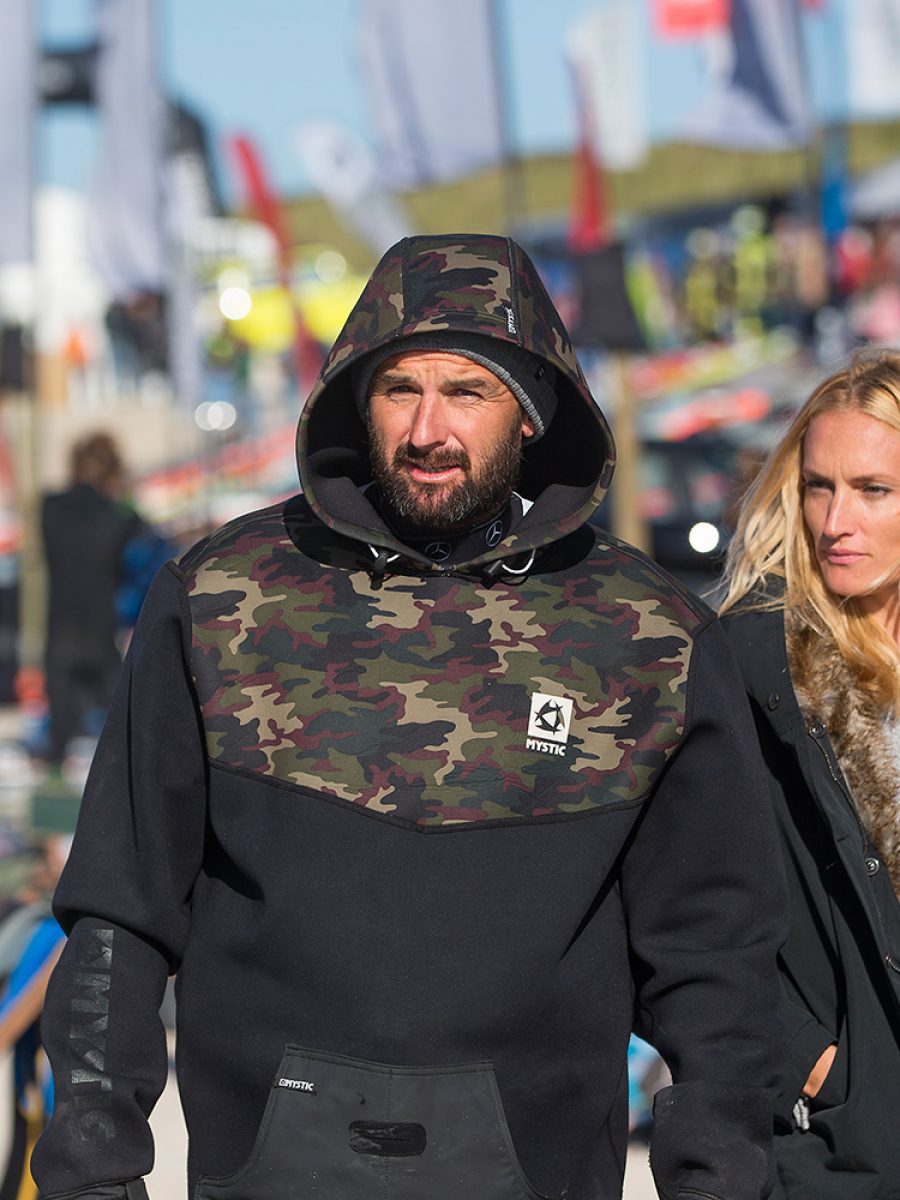
The post ROSS WILLIAMS – REFLECTIONS appeared first on Windsurf Magazine.